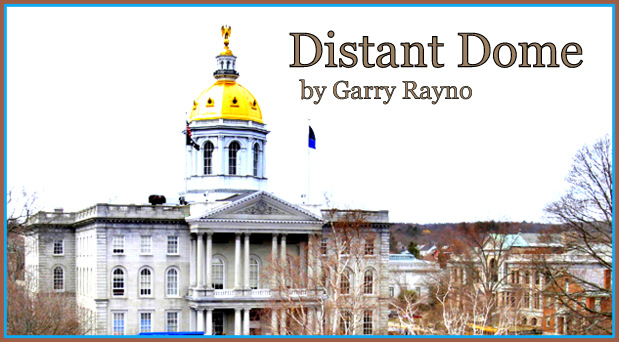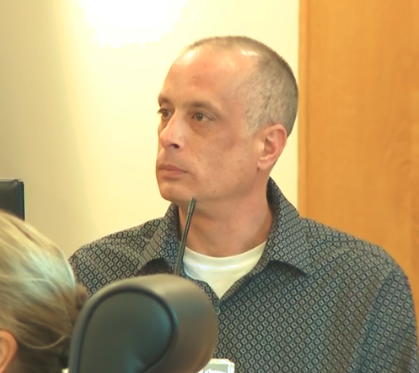
By GARRY RAYNO, InDepthNH.org
The political heat over the vetoed $13.3 billion state budget is almost as hot as was the July weather.
Since Gov. Chris Sununu vetoed the budget passed by Democratic lawmakers without a single Republican vote at the end of June, a steady stream of events to sway public opinion has been generated by the two sides.
The “spinning” began before the House and Senate compromise budget was approved by lawmakers and Sununu’s veto.
At every stage of the game, Sununu checked in saying there were lines in the sand he would not cross. After the Senate approved its budget, which he viewed more favorably than the House’s version because it eliminated some of his tax concerns and included a new secure psychiatric unit he wanted for patients currently housed in a section of the men’s prison in Concord, he outlined a “road to common ground” that indicated where he would be willing to compromise.
He had to know there was at least one thing on that road that Democratic lawmakers could not agree to and that was decreases in business tax rates that went into effect Jan. 1 that lawmakers froze at 2018 rates, a $90 million item that Senate Finance Committee Chair Lou D’Allesandro, D-Manchester, called the foundation of the two-year budget.
The business tax rates continue to be the key roadblock in the budget impasse that appears to be solidifying although House and Senate leaders are scheduled to meet with Sununu this week.
When he vetoed the budget in June, Sununu said the increase in business taxes would reverse the economic growth that past rate cuts provided.
“The Legislature began the process of providing tax relief by lowering the burden on our employers in a measured process,” Sununu writes in his budget veto message. “This had an immediate impact on our economy. Employers thrived and created jobs.”
Sununu continues to maintain that position and he sought support for it from the business community and municipal officials saying he will not agree to any tax increases.
Closed-doors
Last month the governor met behind closed doors with municipal officials to make his case but after the meeting some municipal officials said they were not convinced his position would be most beneficial to their communities.
Lawmakers met with health-care providers, educators and municipal officials to make the case their budget helps those left behind in the good economy, which is more important than additional business tax cuts.
Lawmakers were quick to paint the veto as another example of Sununu taking care of special interests at the expense of the state’s most vulnerable people and property tax payers.
Both sides have recruited supporters to fill newspapers and other media with op-ed pieces either touting the governor’s veto or denouncing it.
Several events have shown the monumental divide over the last two weeks.
The Legislative Fiscal Committee met July 25 and spent most of the day berating the governor for the problems his veto caused for state agencies as his department heads begged to spend more money than the three-month continuing resolution would allow.
The continuing resolution allows state agencies to spend one-quarter of their authorized fiscal year 2019 appropriations, which is a problem for parks, which spend 60 percent of their budget in the summer, or the Department of Transportation which also spends more than one-quarter of its budget on summer work like paving, bridge repair and striping roads.
The veto also prevents agencies like Health and Human Services from starting newly approved programs or spending additional money for designated areas.
The Democratic members of the Fiscal Committee led by Senate Majority Leader Dan Feltes, D-Concord, used the meeting to remind everyone who was responsible for the problems.
Sununu was on vacation but was tuned into the committee’s action tweeting the committee was playing politics with a grant to help reduce violence in public schools.
Although most people at the meeting expected a long day, they did not expect seven hours of a slow slog to emphasize the veto’s disastrous consequences.
And Thursday the contrast could not have been greater between the messages lawmakers and the governor sought to use to sway public opinion.
Soon after the veto, House and Senate leaders announced three hearings before House and Senate finance committee members to discuss the effects of the veto. One meeting was to discuss the effects on health and human services, another on education and the third on all other state services.
Health and Human Services was the topic of the first hearing Thursday and more than 100 people attended including many patients, staff and officials from Easter Seals Farnum Center pleading for the Medicaid reimbursement rate increases included in the vetoed budget.
House Finance Committee Chair Mary Jane Wallner, D-Concord, opened the hearing saying, “We want to know what it’s like in the real world, how it affects you because of the budget veto.”
The legislative budget writers heard from many constituencies: women’s reproductive health, the disability and elderly communities utilizing home care services, people needing housing, and substance abuse treatment and recovery patients and staff.
Many said the governor’s veto will force them to make difficult staff and program decisions without a quick resolution.
Big turnout
Rooms 210 and 211 of the Legislative Office Building, the largest room outside of Representatives Hall for public meetings in the State House complex, was packed with people in every available chair and standing along all available wall space.
The day before the hearing, the governor’s office sent the media a notice that Sununu would be meeting with business leaders at the Business and Industry Association office across the street from the State House a half hour earlier than the hearing was scheduled to start.
The intent was obvious. The governor’s office was trying to pull the small media cadre away from the hearing or at least split their time. Health and Human Services Commissioner Jeffrey Meyers spoke to budget writers about the veto’s affects for the first hour — he was grilled over a number of issues raised the week before at the Fiscal Committee meeting — and that may have been what the governor’s office did not want the media to hear.
The governor met with about 20 business leaders some who backed the governor’s veto and the business tax rate cuts, and others who said the real issues for business were workforce development and the state’s public education system.
The contrast was stark and reflected the two distinct groups the lawmakers and the governor want to solidify as the impasse drags on and more people “in the real world” feel the effects of no new state budget.
$200,000 difference
The budget Sununu proposed was $13.1 billion over the two-year of biennium and lawmakers finalized a $13.3 billion plan.
The difference — $200 million — is a very small percentage.
However, there is currently little give and take and the last two weeks’ events fanned the flames of discord, not compromise.
Sununu is not willing to give on business tax rates and lawmakers say the governor needs to say where he wants budget cuts to offset the $90 million revenue loss from lower business tax rates.
In a true compromise, no one has everything they want, and everyone has to feel some pain.
Longtime State House observers know things have to blow up before a solution can be reached.
The governor and Democratic leaders are not there yet.
The impasse will persist for a while.
Garry Rayno may be reached at garry.rayno@yahoo.com





